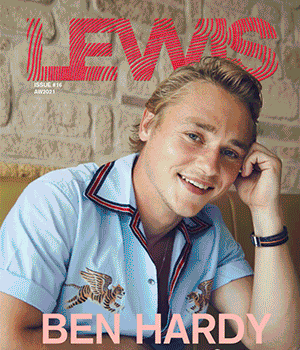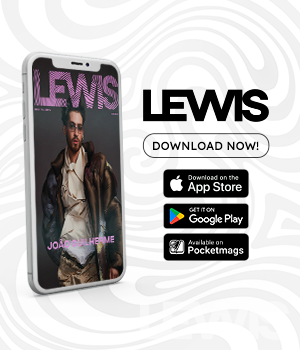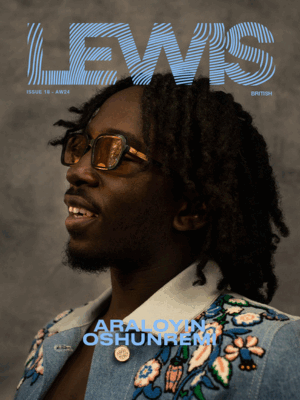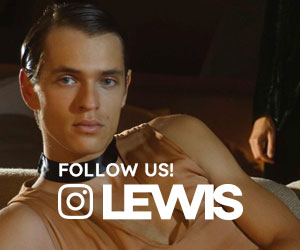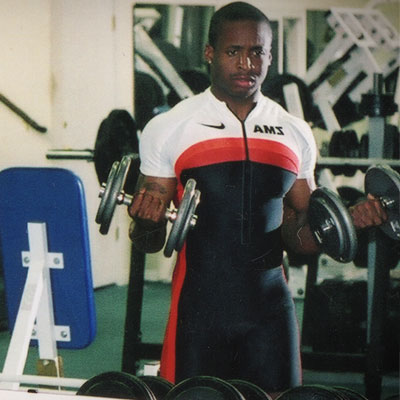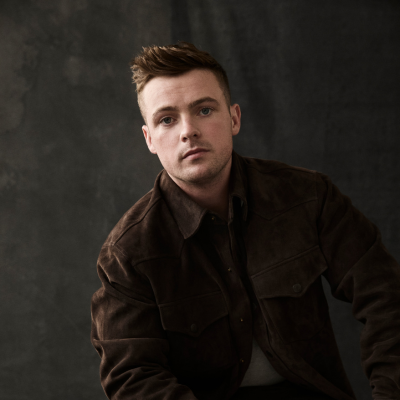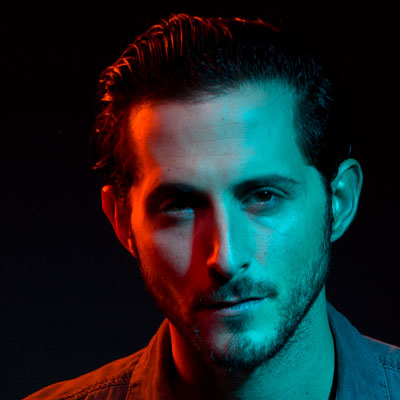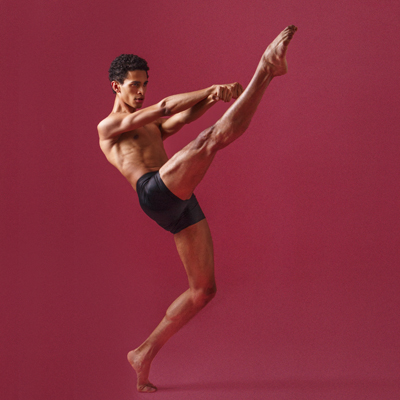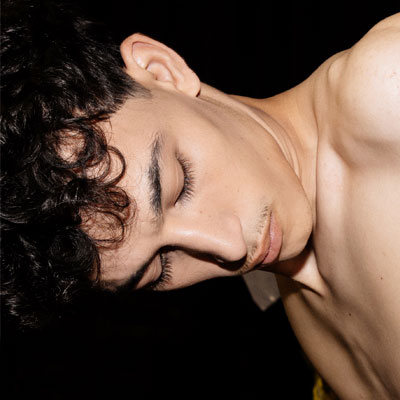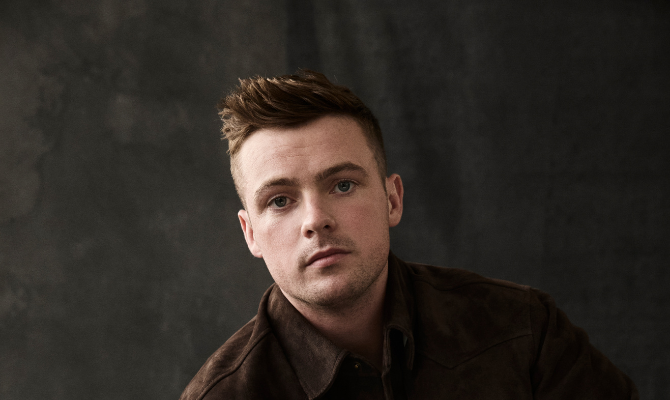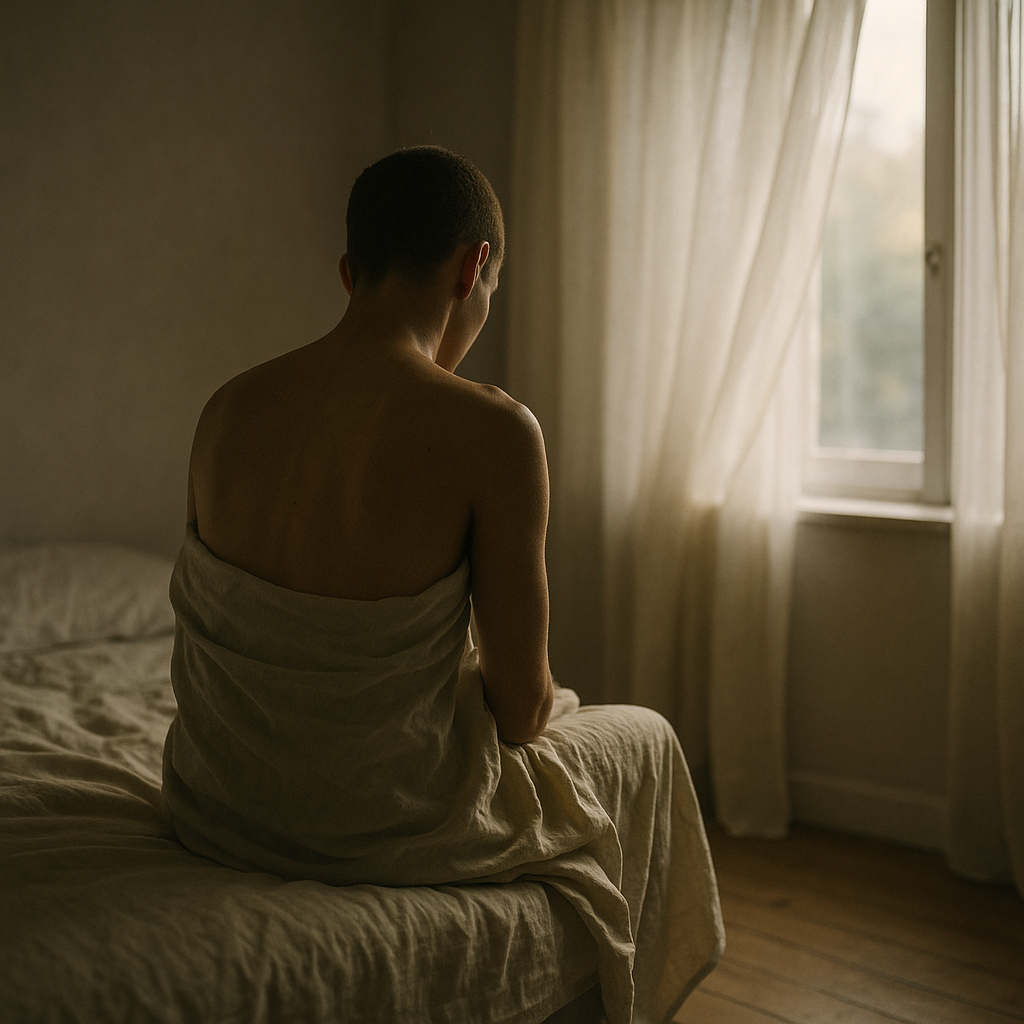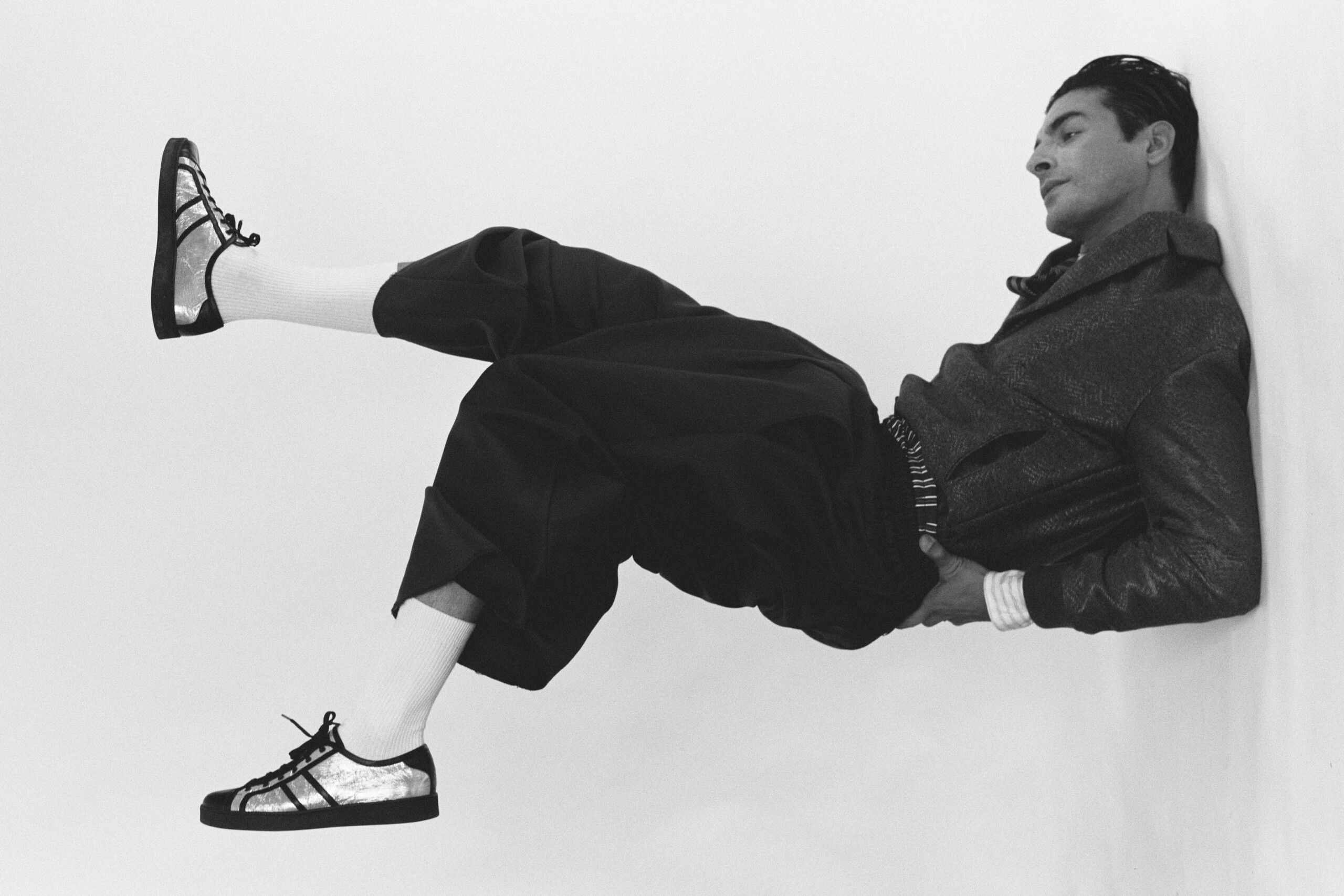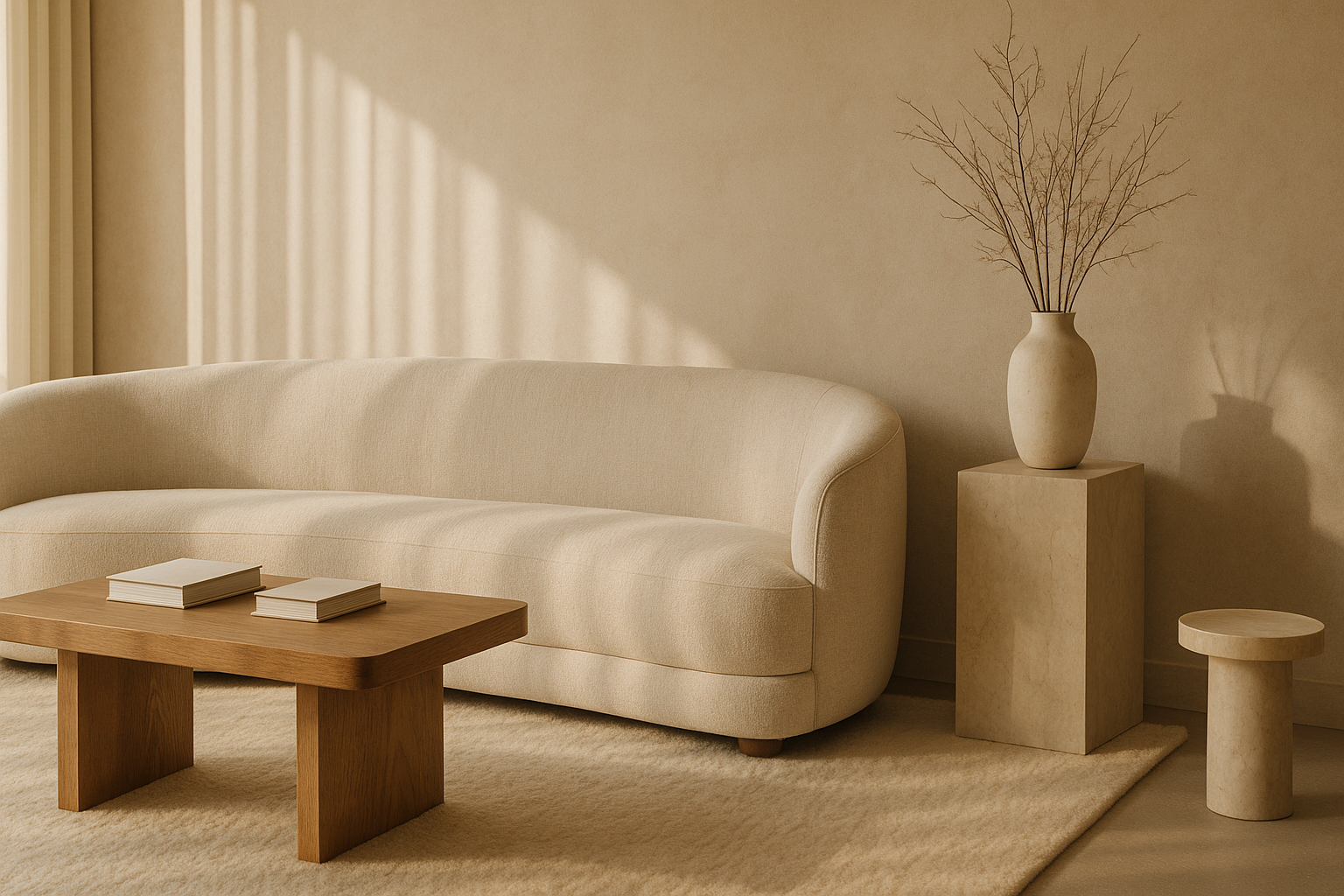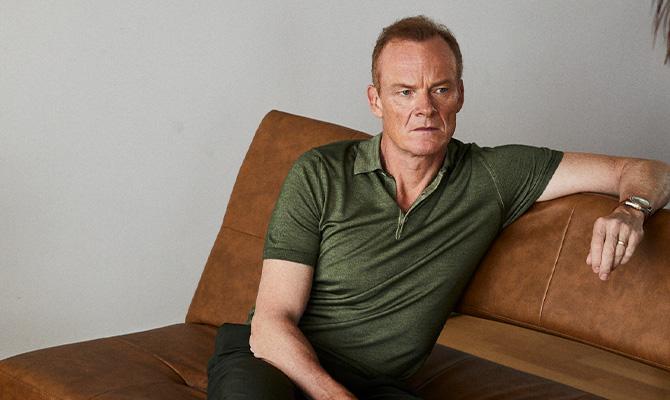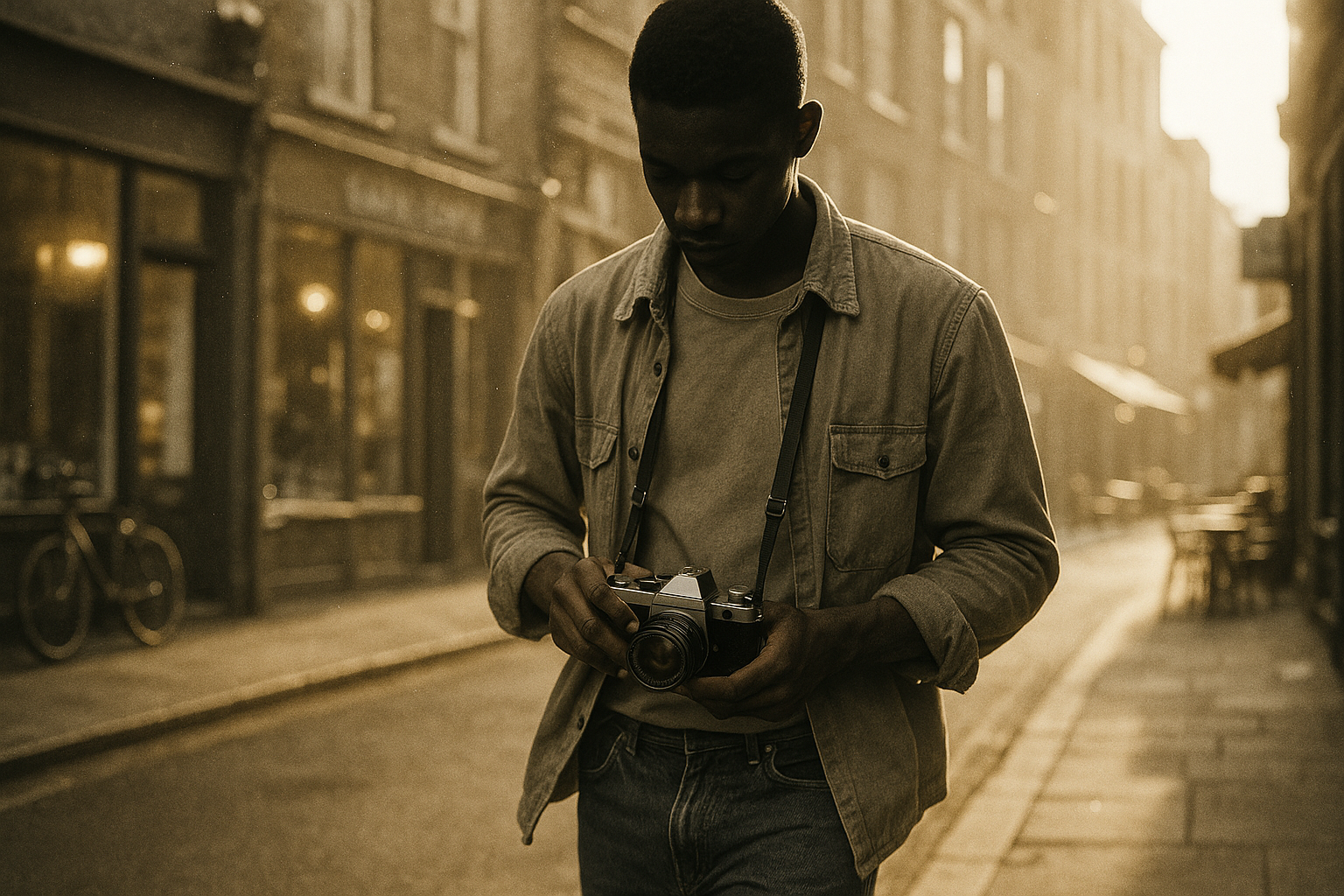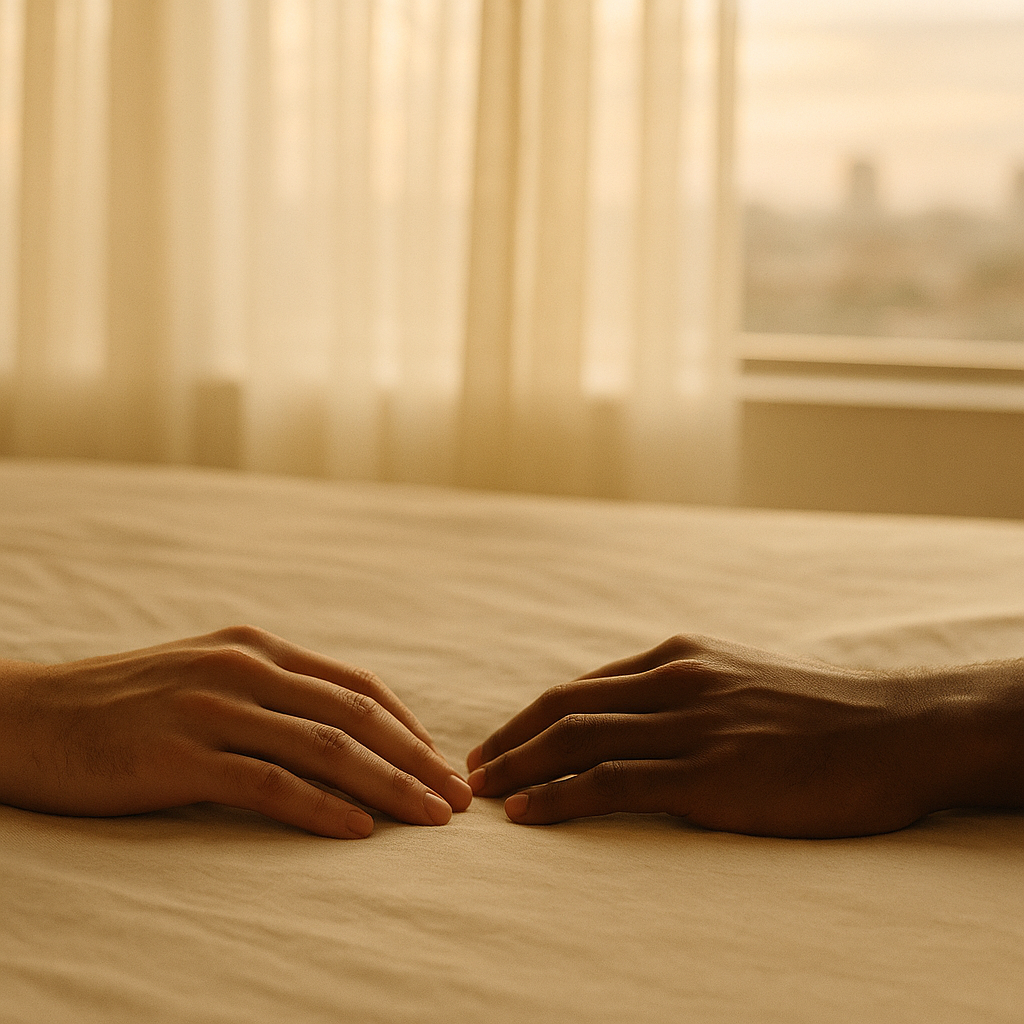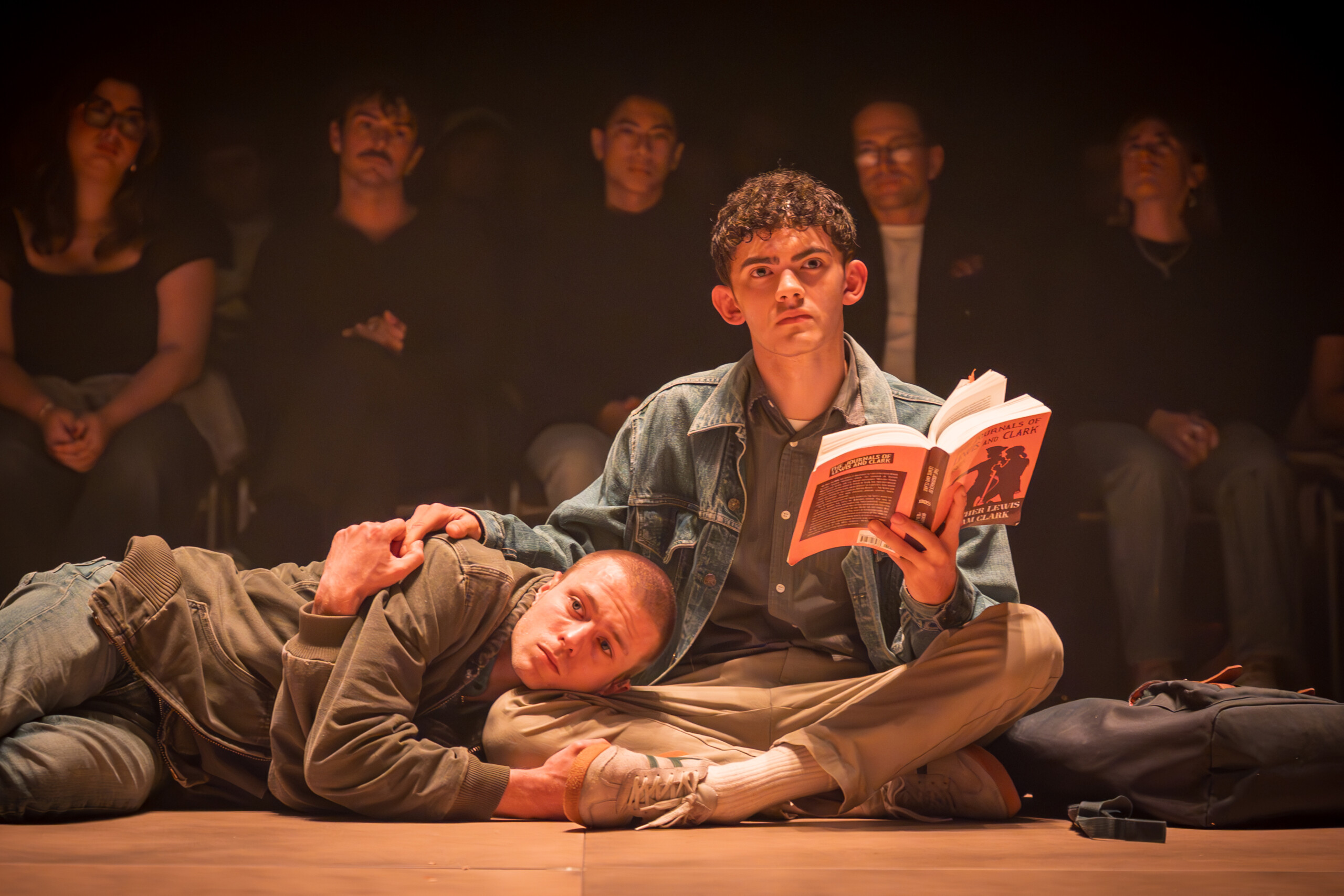If you’re a fan of dark comedy with a historical twist, then Amar Chadha-Patel’s performance in The Decameron on Netflix is not to be missed. As Dioneo, a 14th-century doctor with a sharp wit and Machiavellian charm, Amar brings a complex character to life, balancing the series’ unique blend of humor and historical authenticity. In this exclusive interview, Amar delves into the challenges of portraying Dioneo, his approach to comedy, and how his work across genres—from the fantasy of Willow to the drama of Fifteen Love—shapes his versatile acting career. Discover how Amar navigates the rich narrative of The Decameron and what excites him about his upcoming projects.
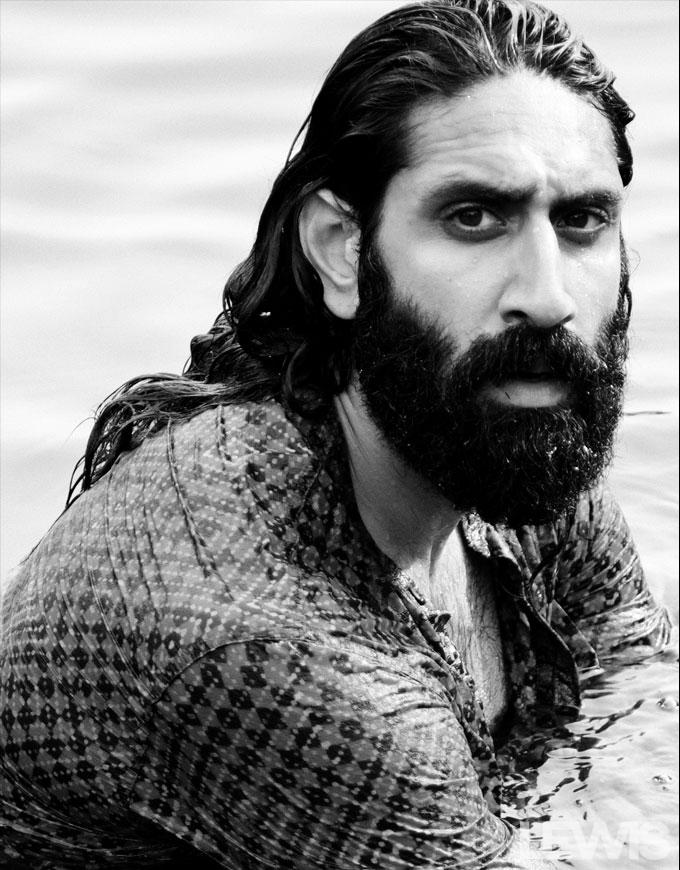
Photographer – Lis Kasper Bang
1. In The Decameron, you play Dioneo, a 14th-century doctor with a sharp wit and a certain charm. How did you approach bringing this complex character to life, balancing the dark comedy with the historical setting?
He was definitely a tough one for me! He was such a micro-nuanced character in a way. He’s a man who thinks he knows what he has to offer (especially to women). He’s in a precarious position where he has to make himself essential to a terrible man in order to gain access to a world he feels like he was made for. So, to maintain all of this he has to adopt this incredibly performative and practiced outward persona. For me to embody that I wanted to feel like I was always performing within the performance. He becomes quite Machiavellian and sinister at points but, I think I made that believable by maintaining that to Dioneo, his motivation is a protagonist’s motivation, not a villains. The villain has to believe that they are the main character, otherwise it doesn’t work! There was also a lot of physical training to get his physique the way Kathleen and I wanted it, essentially a vacuous peacock. But I also adopted this upright, ‘arms behind the back’ pose that made me very uncomfortable and I ended up pulling my shoulder! But it felt like a physicality that suggested this man belonged where he stood but could immediately revert to his merchant/servile class status if questioned. The comedy was very natural, working with Douggie was a dream and it’s not often that I play the ‘straight man’ in comedy, but I loved being there for Douggie to bounce off. In that dynamic it’s always essential to remember that not everyone can take the ‘laugh’. The ‘straight guy’ helps the joke land with the deadpan reaction.
2.The humour in The Decameron is said to resonate with the style of shows like Ghosts and Plebs. How did you adapt to this unique comedic tone, and were there any particular inspirations or challenges in achieving it?
Ah, that’s a real compliment, both those shows are excellent! Honestly, it’s all in the writing, it was so strong! I think the secret was in being in a cast of comedy greats, whose collective influences were the same. The Python-esque nature of the humour is so strong that it came naturally once we all grounded ourselves in the character’s realities. For me certainly I tried to believe every single thing I was doing and not over perform. That is what makes it funny when Tindaro bursts in on Dioneo, who’s half naked and trying to hide Licisca’s night dress. Douggie and I would rehearse these moments and then get so excited when we could feel them working!
3.You’ve worked across a variety of genres, from the fantasy world of Willow to the dramatic intensity of Fifteen Love. How do you navigate these shifts, and is there a particular genre that you find most challenging or rewarding?
Well, the secret to comedy is most definitely timing. If that is something you’re able to nail inherently within you, and then refine it, then a comedic role can be the most rewarding thing in the world. I think actually the best dramatic performances often come from comedic actors as well. Look at Jim Carey in Truman Show, or Sam Rockwell in ‘Moon, Emma Stone in ‘Birdman’ or ‘Poor Things’ (she is master of her craft). Knowing comedy and timing translates well to drama because drama is all about emotive reactions to heartbreaking moments and the space given by a performer to have those thought processes. I relish being able to push myself to bring all these elements to life, and there can be levity in drama and vice versa. I think being able to do as much of it as I can is the reward, that’s why I always look for something new in every project! Willow was such a joy for me because I got to play this gregarious, loud, goofy warrior with genuine heart, but I was also able to stretch those dramatic muscles as well. Fifteen love was a story I thought was incredibly important and the motivation to be part of telling that story kept me grounded and to not search for too much levity. I was honouring the subject matter and I enjoyed it thoroughly. Sometimes drama can be more fulfilling than comedy because with comedy you’re searching for a knee jerk laugh, in an environment that calls for endless repetition, and nothing kills a joke more than repetition. Wow… I got very serious and “technique”… I promise I’ll be more fun.
4.In Willow, you starred alongside Warwick Davis in a high-fantasy adventure. How does working in a fantastical setting compare to your experience in historically grounded or more comedic roles like The Decameron?
In a way, every film or show is a fantasy to me. So, there’s always an element of suspension of disbelief, which helps. Fantasy and Sci-Fi are just straight up fun. We get to play as adults in these incredibly detailed magical environments built for us by geniuses. That drives me to elevate a performance to match the genre! The reality of historical accuracy or contemporary settings create another drive for authenticity. But I love them all equally. With smaller more contemporary productions I find that the lack of huge set pieces and smaller crews focuses the energy towards more grounded stories sometimes., that was definitely the case on Fifteen Love and Dashcam, despite the latter being an intense horror film. The drama felt so much more tangible.
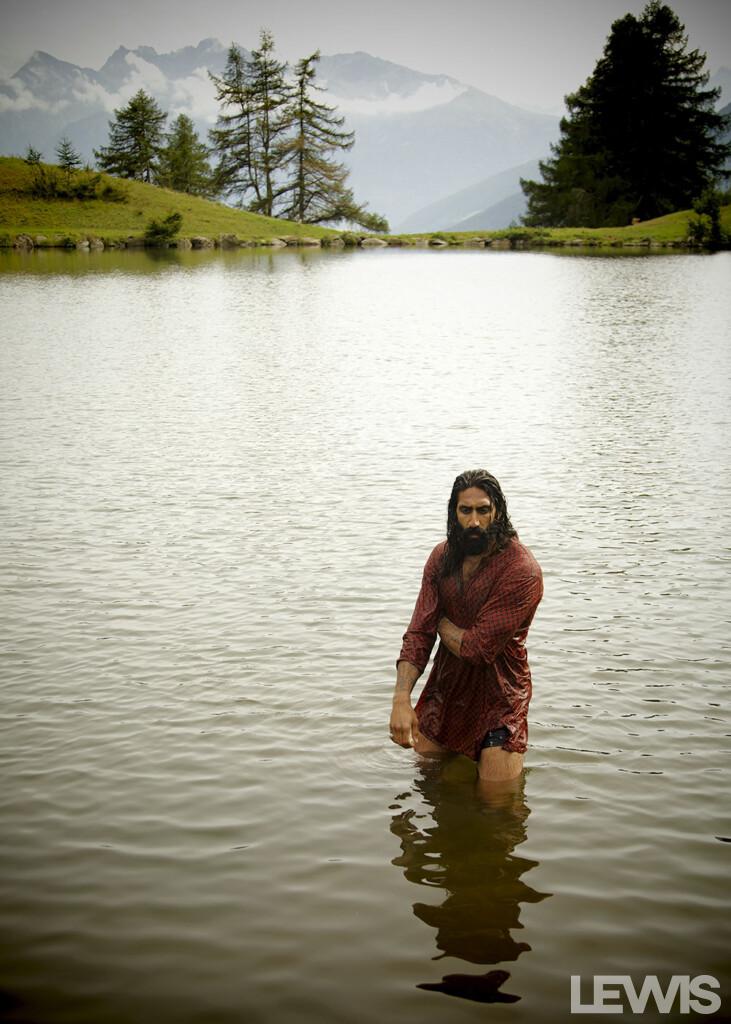
Photographer -Lis Kasper Bang
5.With The Decameron reaching a global audience through Netflix, how do you think the series’ themes and humour translate across different cultures? Have you noticed any interesting reactions from international viewers?
The most rewarding thing I’ve noticed from people (and Ima thirsty lil bitch, I try and read all the reviews and tweets) is seeing people resonate with all these stories and see the complexity we were trying to bring through a historical medium. There are plenty of parallels to modern romance and complex relationships. Also, the show is really about the breakdown of class hierarchies and that’s very relevant today. Sometimes a relevant message is easier to disguise in a different format. I think the humour is universal in a way, at points it’s driven and direct and slapstick, and then it can be subtle and complex, there’s something for everyone. I’m glad not too many people have pulled us up on ‘inaccuracy’ or ‘diversity issues’ etc. Ain’t nobody got time for that. It’s a testament to the strength of the writing and story that people have immediately bought into the world and focused on the emotional content. Actually, my favourite reaction was a tweet (from Brasil I think) which I sent directly to Tanya, she then sent to our group chat with the showrunner and everyone found it hilarious. The tweet read, in all caps: “LICISCA I HATE YOU, HOW CAN YOU DO THIS TO DIONEO YOU SLUT…”. (believe it or not, I’ve edited it to be shorter). I mean I’m honoured that someone would so publicly defend Dioneo’s honour.. but he was a toxic piece of shit.
6.Your upcoming project, William Tell, is highly anticipated. Can you share what excites you most about this role and how it differs from your recent work, like in The Decameron?
Eeeeeeey. Look, after The Decameron, I was seeking out something to test me and keep things interesting. I was looking for a project that was as different as possible. Tell offered me a chance to do some dramatic action that was different to the dark comedy of the Decameron. William Tell is story about revolution in the face of oppression. That’s a transcendent issue that’s more important now than ever. I was honoured to be part of that. It was also really exciting because diversity has moved forward and offers POC actors like me a chance to be part of these stories. But I’m fully aware that a person like me may not have held the role of a Catholic priest in 12th century Switzerland. So, I worked hard with Nick Hamm (the writer and director) and Will Matthews (the associate producer) to create a historically accurate and believable monastic monk who had drawn influences from the Middle East and Christianity to become the character that was needed. That accurate world building is SO exciting to me in filmmaking. Being listened to in that way by the creatives and seen as a creative partner was very fulfilling for me. I also got to have a couple of badass sword fights.
7.You’ve had the opportunity to work with a wide range of talented actors, from Tanya Reynolds and Tony Hale in The Decameron to Connor Swindells in William Tell. How do you adapt to working with such diverse co-stars, and has any collaboration particularly influenced your acting approach?
They’re all terrible. Terrible actors and terrible people…. I JEST. Honestly the most exciting thing about my career has been working with actors like this. The list of talent I’ve been blessed to work with has been endless and I can’t believe I’ve been allowed to share a stage with these people. The continuity amongst them all is that these are all masters of their craft and incredibly generous performers. Creating a great performance is a relationship between people. There is no space for ego, that creates unbalanced work and an audience can tell. These are all actors who give as much when the camera is on them, as they do when it isn’t. So yes, they’re all completely different and the individual essence of who they are is the key to that. They’re all diverse in their methodology but not in their ethic and I respect that so much. Every job is learning curve. Watching actors like Bessie Carter and Rafe Spall, taught me about razor sharpening choreography in my performance, working opposite actors like Connor, Claes Bang or John David Washington showed me the value of adapting and not feeling limited in a “choice” for a scene, so many lessons from them all that I feed into the “essence” of what I can then bring. I think I’m discerning with the choices of project I go for, and I always look out for the actors attached and whether I respect or like their work. That tends to be a good indicator of their professional ability and personal style. With grounded, down to earth actors like that, the chemistry becomes so easy to build. So far, I’ve been incredibly lucky. I think one of my favourite on set moments was a scene in The Third Day where I have to administer a lethal injection to Emily Watson much against my desire to. She is supposed to say “Do it C*nt” which is quite funny because I was playing a weasel of a priest. I had no idea how we were going to do it and keep the sense of drama. She turned to me just before and said “If it’s ok, I’m just going to turn to you and stare at you in the eyes and the whisper it? What do you think?”. I just thought “You’re a titan, do whatever you want”. When we got to the scene, she just stared me down for ages and then said it and I literally started crying. She gave me exactly what I needed to make it great. That’s when acting can become so exciting!
8.Given your involvement in both large-scale productions and more intimate projects, how do you see your career evolving? Are there any dream roles or genres that you’re eager to explore next?
As long as there is variety and I’m being tested then I’m going to feel like I’m not getting complacent.
I hope to build a career that has longevity and staying power, that’s why I’m so interested in always doing something new to test my range! I love a variety of the big studio films and TV and the smaller indies. Eventually I will get grey and soft and although aging gracefully is a real male privilege, roles not focused on certain aesthetics are always a bit more fun! The last two projects I’ve done/am on, are independent films and they’re a different beast, much more of an ‘in the mud’ co-creative sensibility, which I love as a collaborator. My mission statement as an actor is to push the definition of what a brown man can be on screen, so I only take roles written with neutrality in mind and only if the role is incredibly interesting for a person of Indian heritage, do I entertain it. My team is on board with this, and I think we’ve done some amazing work together. I would love to play some more outrageous character roles in genre pieces. Dream roles? I won’t know till they come in, but actors like Dan Stevens and Oscar Issacs have that range and I’d love to build a career like theirs! It’s hard for south Asian actors though. Not enough contemporary stories are written with us in mind, so most of my options are period or Sci-Fi fantasy pieces. I would love to lead a small character driven independent film soon, and show I have the stones to hold a complex character arc. So yeah… someone cast me in that.
9.As your career continues to gain momentum, especially with the success of The Decameron, how do you stay grounded? What do you do to unwind and recharge after the intensity of filming?
I have a friend called Amanda whose role in my life is to keep me humble. She will routinely ask me to come over to her house and put-up shelves or photos. I’m a self-professed extrovert so I get my energy and joy from being around other people (consensually). So, I like to spend as much time as I can hanging out with my loved ones. Wandering around cities, checking out random galleries. I’m really getting into walking into random exhibitions and forming opinions on art without reading anything about it beforehand. I feel like we’re told how to enjoy/experience art too much these days, so I’m relishing seeing things and thinking “I don’t like that”. I go dancing a LOT. Solo cinema is one of life’s great joys. After intense filming bouts, I try to just get into nature, I love mushroom foraging through woods. It forces you to slow down and stare at the ground more than you would normally. Get a decent mushroom book and enjoying finding those lil guys. They’re really good at hiding.
10.If you could sit down with any historical figure from the 14th century—like your character Dioneo—who would it be, and why? What do you think they’d make of your portrayal in The Decameron*?
Oh man, huge question. SO many. I mean history is written by the victors and so because of white European colonialism, we don’t really have enough study and insight to pre-colonial history in Africa and Asia in the mainstream. Mansa Musa was the richest monarch in the world at one point and he built the Malian empire in west Africa. I would love to have a chat with him. I think he’d be respectful of the Decameron, but probably wouldn’t give a shit about it. Also, any woman who might have been seen as a witch in medieval England, that would be a real insight in to pagan matriarchal views of pre-witch trial England. She equally, probably wouldn’t give a shit about Dioneo either. She would probably have had more in common with Leila’s Straillia. Basically, anyone who could give me an insight into history different from what ours is now. Also, whenever anyone asks me about a fictional historical figure dinner party, I always think “yeah, Cleopatra, Jesus, Jimi Hendrix etc.. but hanging out with a pre–Ice Age human would be WILD”.
11.Finally, can you tell us more about your current projects and any future plans or considerations you have? Is there anything else you’d like to share with our readers?
I’m currently shooting a film in New Jersey which is so different to any of the projects I’ve ever done, it’s got a 70’s and cinematic film to it and I can’t wait for audiences to see it. I’m hoping to get back into making some more music, which for me was my drama school. I spent about 4 years touring and playing live with two of my best friends before I became an actor. Learning to be on stage in front of a few thousand people, and having to be entertaining, whilst also improvising with a bombastic live show was a baptism of fire. There is no buzz like playing loud exciting music live, so I’d love to do that again! I’ve got my fingers fluttering away on a couple film script ideas and a dystopian spy satire too, which will be very fun if anyone ever lets me make it.
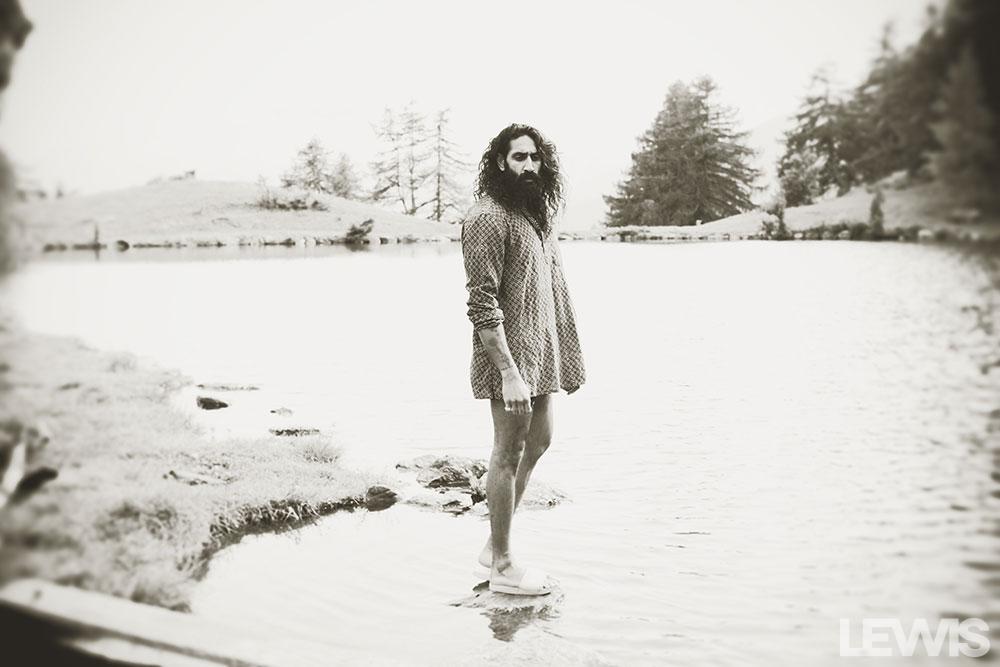
Photographer -Lis Kasper Bang
THE DECAMERON is available to watch on Netflix now.

